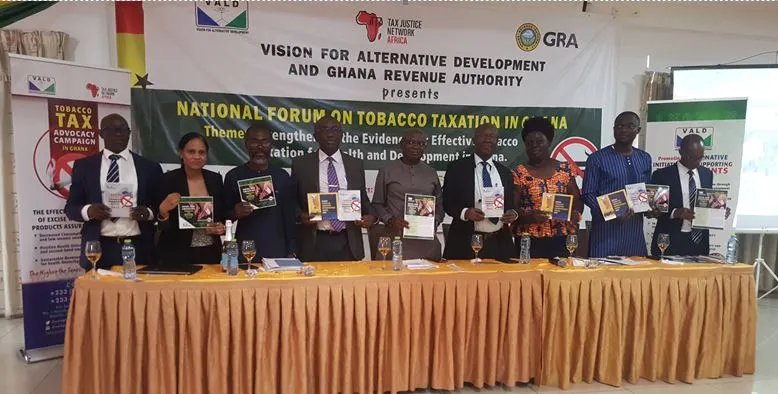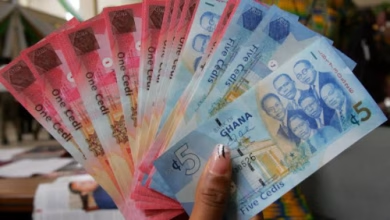Ghana Civil Society Group Calls For Tax Reform To Curb Tobacco Use

- CSO urges government to reform the country's tax structure
- VALD also highlighted the economic burden
- VALD made this call at a national forum
A Ghanaian civil society organization (CSO) is urging the government to reform the country’s tax structure on tobacco products.
Vision for Alternative Development (VALD) argues that stronger tobacco taxation would not only boost government revenue but also discourage tobacco use, aligning Ghana with global health best practices.
VALD made this call at a national forum on tobacco taxation, highlighting the potential for increased tax revenue to fund sustainable development goals and reduce reliance on international aid.
They emphasized that many countries, including developing nations, are increasingly looking to domestic sources like tobacco taxes to fund essential programs.
“By making tobacco products more expensive, we can discourage people from using them,” said VALD official Labram Musah. “This leads to a healthier population, a more productive workforce, and ultimately more tax revenue across the board.”
Currently, Ghana’s tobacco tax system is based on a percentage of the product’s value, which VALD argues is ineffective. They recommend a shift to a system that taxes tobacco based on a set price per unit, bringing Ghana closer to World Health Organization (WHO) recommendations.
Research suggests that a 10% increase in tobacco taxes could lead to a significant reduction in consumption, with a steeper decline in low- and middle-income countries like Ghana. VALD also highlighted the economic burden of tobacco use on Ghana’s healthcare system, estimating annual costs at over GH¢97 million.
The forum, co-organized by VALD and various government and health agencies, aimed to evaluate Ghana’s current tobacco control measures and identify areas for improvement. It also launched three reports on the state of tobacco taxation, industry interference, and emerging tobacco products in Ghana.
The reports reveal that cigarettes dominate Ghana’s tobacco market, with consumption averaging over 2 billion sticks annually. They also confirm that the current tax burden on tobacco falls short of WHO recommendations.
VALD advocates for stricter regulations, including a ban on small cigarette packs, a tactic seen as encouraging affordability and youth access. The reports also urge the government to exclude the tobacco industry from policymaking to prevent undue influence on tax legislation.
The Ghana Non-Communicable Diseases Alliance pledged its support to VALD’s efforts, acknowledging the devastating health impacts of tobacco use. Tobacco is the leading cause of preventable death globally, claiming over 8 million lives each year, including over 5,000 in Ghana annually.






